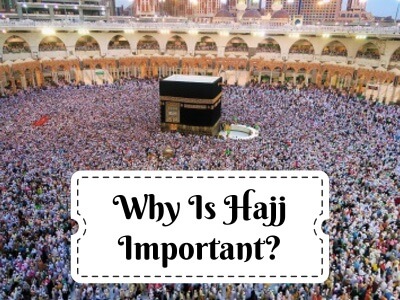Hajj, one of the Five Pillars of Islam, holds immense significance in the lives of Muslims around the world. This pilgrimage to the holy city of Mecca is not just a physical journey; it represents a spiritual voyage and a profound connection to the faith. In this article, we will delve into the essence of Hajj, exploring its meaning, importance, and the religious obligation it entails.
What is Hajj? Hajj, in its essence, is a pilgrimage that every financially and physically capable Muslim is required to undertake at least once in their lifetime. It occurs during the Islamic month of Dhu al-Hijjah and involves a series of rituals and activities that symbolize the unity of Muslims, their submission to Allah, and their equality before Him.
Why Is Hajj Important? The importance of Hajj extends beyond its status as a religious duty; it is a profound spiritual experience that cleanses the soul and fosters a sense of unity among Muslims. The rituals performed during Hajj trace the footsteps of Prophet Ibrahim (Abraham) and his family, symbolizing devotion, sacrifice, and the pursuit of righteousness.
Hajj serves as a powerful reminder of the equality of all Muslims before Allah. Regardless of nationality, ethnicity, or social status, pilgrims dress in simple white garments, emphasizing the unity and humility that define the Islamic faith. The experience of standing alongside millions of fellow Muslims in worship fosters a deep sense of community and brotherhood.
Moreover, Hajj is a journey of self-discovery and reflection. Pilgrims detach from worldly comforts, focusing solely on their relationship with Allah. The physical challenges of the pilgrimage, such as the strenuous walks and the symbolic stoning of the devil, mirror life’s struggles and the determination required to overcome them.
Is Hajj Compulsory? Yes, Hajj is obligatory for every financially and physically able Muslim who has reached the age of maturity. It is one of the Five Pillars of Islam, emphasizing the fundamental acts of worship that shape a Muslim’s faith and practice. The annual pilgrimage is a demonstration of devotion and submission to Allah, underscoring the equality of all believers in the eyes of their Creator.
How Long is Hajj? The duration of Hajj varies depending on the type of Hajj being performed. The most common type of Hajj is the Tamattu Hajj, which involves performing Umrah first and then Hajj . The duration of Tamattu Hajj is usually around 15 days . The other types of Hajj, Qiran and Ifrad, are shorter in duration and take around 10 days to complete .
What is the difference between Hajj and Umrah? Hajj and Umrah are both Islamic pilgrimages to Mecca, but there are some differences between the two. Hajj is a mandatory pilgrimage that every Muslim must make at least once in their lifetime if they are able . Umrah, on the other hand, is a voluntary pilgrimage that can be performed at any time of the year . While Hajj involves a series of rituals that must be performed in a specific order, Umrah has fewer rituals and can be completed in a shorter amount of time .
When is Hajj 2023? According to IslamicFinder, the rituals of Hajj 2023 are expected to commence from the evening of Sunday, June 25, 2023 and will continue till the evening of Friday, June 30, 2023. However, please note that this is a tentative date as the actual date is contingent on the sighting of the moon of Dhul Hijjah, 1444, the 12th and last month of the Islamic calendar.
In conclusion, Hajj is an important pillar of Islam and is considered a mandatory religious obligation for Muslims who are physically and financially capable of performing it at least once in their lifetime. It is a spiritual journey that involves a series of rituals and is a way to purify one’s soul and seek forgiveness for past sins. Hajj is also a way to strengthen one’s faith and connect with other Muslims from around the world. The pilgrimage is a reminder of the Prophet Ibrahim’s devotion to Allah and his willingness to sacrifice his son Ismail.

